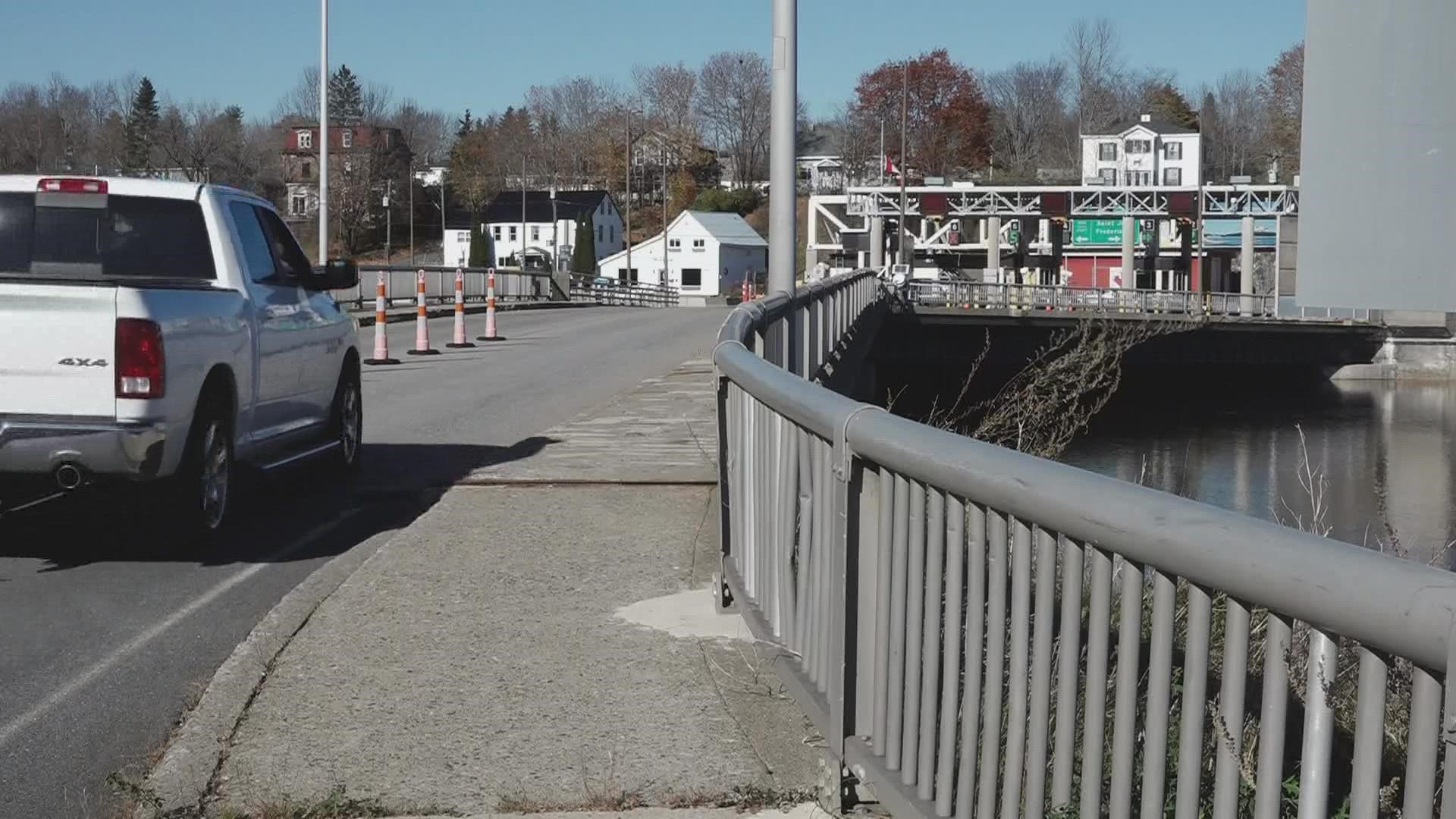CALAIS, Maine — For many businesses and families near Maine's border with Canada, the lifting of border restrictions on the United States side has been long-awaited. Many Maine businesses lost more than half of their revenue during the closure, as they rely heavily on Canadian customers.
Starting Monday, fully vaccinated Canadians and other international travelers can enter the U.S. with proof of COVID-19 vaccination.
For information from the U.S. Centers for Disease Control and Prevention on the approved vaccines, click here.
The U.S. Department of Homeland Security has also compiled a fact sheet with important traveler information for those looking to come to the U.S. for tourism or non-essential reasons.
“I welcome this long overdue step forward. For too long, the closed border with our Canadian neighbors has made it difficult, if not impossible, for cross-border families to see one another, and it has strained our local small businesses and our state’s tourism industry," Gov. Janet Mills said in a statement. "I applaud the [Biden] Administration for heeding my call and that of Maine’s Congressional Delegation by reopening the border with Canada in a safe way.”
Lorraine Mitchell and her husband, John, live right by the St. Croix River overlooking Canada. They are just one of the hundreds of families greatly affected by the border closure. Their family and grandkids who live in Canada could not come over, and they had to quarantine twice for 14 days when visiting Canada.
"I really missed the grandkids," Lorraine Mitchell said.
"This is like Bangor and Brewer, this is really one town it just happens to be separated by an international boundary," John Mitchell added. "You got Facetime and you can talk to them on the phone, but that's not the same as kissing them and hugging them."
The lifting of restrictions for vaccinated Canadians is still sparking a mix of reactions among Maine business owners. Many are excited for the return of Canadians who they’ve relied on to keep their doors open, but some are concerned about remaining red tape.
Canadians must take a PCR test 72 hours before their planned re-entry into Canada. Business owners in Maine argue this requirement is too much of a burden for Canadian travelers wanting a quick visit to the state.
“I wish Canadians wouldn’t be required take the PCR test to get back across into Canada because, otherwise, the locals won’t come across,” Steve Clark, who owns Nook & Cranny Restaurant, told NEWS CENTER Maine. “Canadians aren’t going to come [to the U.S.] for one day and then pay for a test that can take up to 24 hours to get results for.”
Clark said Canadians represent 60-70% of his sales, but he’s been able to keep his doors open without their business.
Nook & Cranny Restaurant isn’t the only business close to the border that has suffered from losing Canadian customers. Marden’s in Calais has lost 40% of its sales due to border restrictions, according to the company’s CEO, Craig Burgess.
Calais resident Deanna Bowen said appointments for PCR COVID-19 tests in Calais and neighboring towns are hard to come by, and expensive for many.
"Right now I booked my appointments out 3 weeks," Bowen told NEWS CENTER Maine.
"It still is not going to make sense for them to come here when they have to pay out-of-pocket for testing," she added.
To make it easier for Canadians to take a PCR test and be allowed back into Canada after visiting Maine, the Maine Center for Disease Control and Prevention has opened a community clinic in Calais that is offering free PCR testing without an appointment, regardless of insurance or citizenship. Tests are being offered every Monday and Tuesday from 7 a.m.-12:30 p.m.

